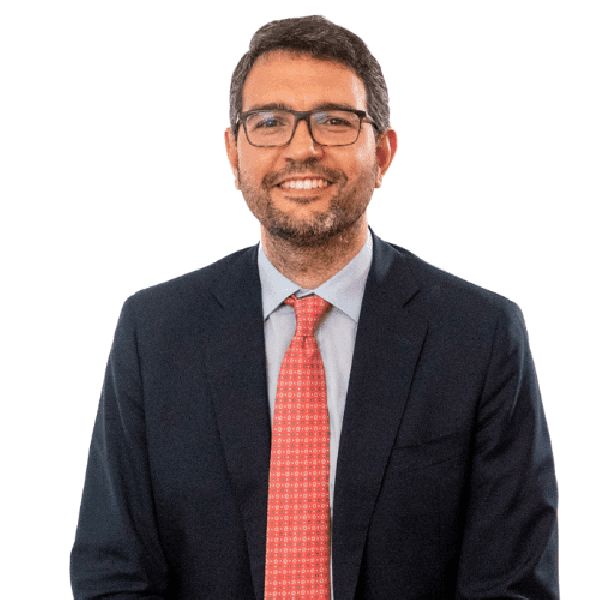
|
11.10.2023 | Teodor BURNAR
|




|
Mr. Kingsley Izimah (WOLEP member, Nigeria): ”If you want to earn quick and good cash with high return on investment in Nigeria, invest in the real estate sector. Otherwise, invest in the tech start-up sector, which holds long term great potential with high yields for investors”
WOLEP: To begin, would you kindly provide us with some insights into your background and experience as a lawyer?
Kingsley Izimah: I am a practicing lawyer since 2012. After completing a year of law school in 2010, I obtained my practicing license in 2011 and commenced full legal practice in 2012. Throughout my active legal practice, I have specialized in business law, corporate law, immigration, and property and real estate law.
My legal expertise has been sought by both local and foreign clients. Notably, I had the opportunity to work with an Indian American client residing in New York who expressed interest in investing in turn-key projects in the Nigerian real estate sector. This connection led me to learn about WOLEP, which is a valuable resource for me as a lawyer to showcase potential investment opportunities available in Lagos, Nigeria's most prosperous state.
WOLEP: That’s quite interesting!
Kingsley Izimah: As mentioned earlier, Lagos State serves as the bustling economic and commercial center not just for Nigeria but for the entire West Africa region. This is precisely why the Indian American client sought my assistance in exploring investment opportunities in Nigeria, particularly in real estate. During our discussions, he mentioned one platform where clients connect with lawyers. Intrigued, I conducted an online search and stumbled upon WOLEP. Impressed by what I found, I promptly reached out via email, and here we are today.
Over the past decade, my legal practice has been primarily focused on real estate and property investment, immigration, as well as commercial, corporate, and business law. Throughout this time, my team and I have successfully served a diverse clientele, consisting of both local and foreign individuals, without encountering any significant issues or challenges.
Lagos State serves as the bustling economic and commercial center not just for Nigeria but for the entire West Africa region.
WOLEP: We appreciate you sharing this insightful background information. Could you please outline the essential legal requirements and procedures that a foreign company would need to adhere to when establishing a presence in Lagos, for instance?
Kingsley Izimah: The NIPC (Nigerian Investment Promotion Commission) Act permits 100% foreign ownership of companies in all sectors, except for a few sectors reserved for Nigerian citizens.For any foreign company intending to engage in legal and legitimate business activities within Nigeria, the crucial initial step involves registering with the Corporate Affairs Commission (CAC). Serving as the government regulatory agency responsible for company registration in Nigeria, the CAC grants legal entity status to the registered company, enabling it to conduct business operations in the country. Subsequently, foreign individuals such as yourself would need to proceed with the preparation of an expatriate quota, facilitating the acquisition of the Subject to Regularization (STR) visa, which permits foreigners to reside and work in Nigeria.
Upon arrival, foreign individuals are granted an STR visa by the Nigerian Immigration Service, which subsequently provides them with a resident permit. This permit legally authorizes them to reside in Nigeria and engage in business activities. Additionally, they are issued a business permit or license, enabling them to operate their business legally.
As part of the company registration process, upon receiving their certificate of incorporation from the CAC, companies typically obtain a Tax Identification Number (TIN) and a domiciliary account wit commercial banks . Foreign investors often prefer repatrating their funds and profits to their home countries, necessitating a domiciliary account for ease of repatriation. These documentations are considered essential for a legal and legitimate business enterprise by foreign nationals in Nigeria.
It is thus customary to open a corporate account and domiciliary account duly registered companies upon arrival in Nigeria, as these serve as significant licenses and certifications.
For those interested in venturing into the non-oil sector, liaising with the Ministry of Foreign Affairs and Chambers of Commerce becomes necessary. We have previously assisted numerous clients in navigating these processes successfully.
Here's an example to demonstrate different approaches to foreign investment in Nigeria. Currently, there are Chinese companies operating in Nigeria involved in mining lithium oxide and building railroads through various cities in Nigeria. This lithium oxide mineral is a crucial component used in manufacturing car batteries for brands like Tesla, Samsung, and iPhone. To begin mining operations, these Chinese companies obtain a mining license from the Federal Ministry of Mines and Steel Development. This license grants them permission to explore and extract the minerals, which they refine and export for battery production.
On the other hand, foreign companies from countries like India, Germany, the Netherlands, France, Canada, China Belgium, the UK, the USA and Spain who are Nigeria’s top export and import partners engage in non-oil businesses, such as durum wheat processing or cocoa natrural and liquified gas, urea, sorghum, raw cane sugar production in Nigeria.
Some foreign companies prefer outsourcing their services to third party local companies, instead of coming into Nigeria to register a company and seeking licenses from the Ministry of Mines and Steel Development, these companies obtain licenses through the Ministry of Agriculture. These licenses allow them to purchase agricultural products like wheat, maize, cashew nuts, and peanuts for their processing operations.
It's worth noting that not all foreign companies or individuals choose to physically come to Nigeria to conduct business. Some opt for a different approach, as exemplified by a business interaction we had with soem foreign companies making inquiries about coming into various sectors of the Nigerian business. Rather than establishing direct operations in Nigeria, they established an outsourcing company. This company would engage Nigerian consortiums or local companies to supply specific products. These products would be sent to a destination like the British Virgin Islands, Panama, Jamaica, or Spain. From Spain, the outsourced company would then transport the goods to the final destination, for example, the United States. This type of foreign investor focuses on sourcing materials and exporting them to the required countries, without needing to establish a physical presence or go through the registration process in Nigeria.
It's important to highlight that various approaches exist when it comes to foreign investment in Nigeria. Some investors choose to establish a presence, while others opt for outsourcing services or procuring materials from local companies without registering in Nigeria.
Various approaches exist when it comes to foreign investment in Nigeria. Some investors choose to establish a presence, while others opt for outsourcing services or procuring materials from local companies without registering in Nigeria.
WOLEP: How does Nigerian law safeguard the rights and interests of foreign investors? Furthermore, in the current economic climate, is Nigeria considered to be stable and favorable for foreign investors?
Kingsley Izimah: Let me address your questions one by one. There are certain countries with which Nigeria has established business relations and treaties, including the UK, Germany, China, Canada and the USA, among others. These partnerships are facilitated through bilateral agreements and cordinated through chambers of commerce such as the Nigeria-American Chamber of Commerce (NACC), Bilateral Invertsment Treaties (BIT), Africa Growth and Opportunity Act (AGOA) etc. These agencies and chambers of commerce form avenues or channels that ensure the protection of their citizens' business interests and growth of local businesses in Nigeria. Additionally, the US government has enacted a robust act, Africa Growth and Opportunity Act (AGOA) specifically to safeguard the interests of US businesses operating in Nigeria and also encourage trade and investment framework between the US and Nigeria.
Nigeria maintains a particularly close relationship with the United States and Britain due to their significant investments in the Nigerian economy. In fact, the US and Britain are the largest purchasers of Nigerian petroleum and agro-allied products. Consequently, There is huge interest from American companies in Nigeria because of the size of the market. Due to their vested interest in Nigeria's oil, there are comprehensive agreements in place to ensure the protection of American personnel and the companies established in Nigeria. Even during times of economic challenges or attacks faced by other companies operating in Nigeria, the activities of American companies remain relatively unaffected.
Nigeria maintains a particularly close relationship with the United States and Britain due to their significant interest in Nigeria's oil and petroleum products.
WOLEP: Turning our attention to another question, what tax incentives are available to investors in Nigeria?
Kingsley Izimah: Newly incorporated for-profit companies in Nigeria are eligible for tax incentives. These incentives vary depending on the line of business. It is important to note that these tax incentives do not apply to NGOs or not-for-profit companies.
In the extractive industry, which involves obtaining raw materials, the tax exemption period is one year. On the other hand, companies operating in the petroleum sector enjoy a three-year tax exemption period, but this is subject to foreign companies having Nigerian representation on their board of directors. This provision applies to companies involved in mining oil and crude oil products.
For companies engaged in the extractive and agricultural sectors of raw materials such as cocoa, maize, sorghum, millet, and cowpea, can enjoy up to 3 (three) to 5 (five) years tax holiday or exemption period or concession offered by the government as the case maybe. During this period, these companies can conduct their business in Nigeria without paying taxes or enjoy deffered royalty payments, capital allowance of up to 95% of qualiying capital expenditure as well as exemptions from customs and import duties for plant, machinery and equipment for mining operations.
WOLEP: Throughout our discussion, we have explored the various actions taken by the Nigerian government to encourage and support investments. It appears that Nigeria has a government that is favorable towards fostering a pro-business environment.
Kingsley Izimah: A new government recently came into power which is currently dealing with some challenges. However, certain sectors of the economy, such as telecommunications and businesses like Elon Musk's Starlink, tend to remain unaffected by issues such as conflicts or crises. On the other hand, the extractive industry, including cocoa and agricultural products, may face more challenges due to fluctuations in the foreign exchange market. The stability of the non-oil sector, particularly in the agricultural produce extraction industry, is improving. Kidnapping incidents are more prevalent in the Niger Delta region, where oil production is concentrated, while Lagos and the South-West region generally experience fewer security issues.
In Lagos, a significant number of foreign companies, including Nestlé Nigeria, Promasidor Nigeria, PZ Cussons Nigeria, Saipem Nigeria, Shell Nigeria, Stanbic IBTC Holdings, Unilever Nigeria Plc, UTC Nigeria Plc, Cappa and D’Alberto Nigeria, Marriot International, Julius Berger Nigeria Plc, Honda Nigeria, Toyota Motors, Mercedes Benz Nigeria, Procter & Gamble, Cadbury Nigeria Plc, Chevron Nigeria, ExxonMobil Nigeria, Guinness Nigeria, John Holt Plc, Lafarge Africa, SPAR from South Africa, Airtel Networks Limited, and DHL, are in full operation and business of producing their goods and rendering services to the Nigerian market as Nigeria-German Chemicals Ltd and other foreign companies also freely conduct business in Nigeria. Foreign companies planning to enter Nigeria should conduct a thorough study of security risks of kidnapping and abduction of foreign nationals in different regions of Nigeria. High-risk areas of kidnapping and abduction of foreign nationals include some states in the South-East and South-South part of Nigeria known for oil-related kidnapping incidents and some northern regions affected by boko haram insurgency and kidnapping as well as similar jihadist rebel groups. However, in the South Western region which includes Lagos, Ogun State, Ondo State, and Osun State, are more stable as there is generally a more relaxed environment for business activities with less risk of kidnapping, abduction of foreign nationals.
It is worth noting that many foreign individuals and companies, such as the Chinese working on railway projects, Lebanese involved in the property and real estate sector with major investments in the hospitality and tourism industry as well as Indians who own a significant portion of Fast Moving Commodity Goods (FMCGs) as well as real estate businesses in Lagos, are comfortably operating in the South Western region. There are ongoing massive wdevelopmental projects in Lagos, worth millions of US Dollars including the construction of a large seaport in the Lekki free trade zone, and notable companies like NIPCO, Conoil, Seven-Up Bottling Company Plc, Emel Group, Atlantic Shrimpers Limited, Royal Salt, Kewalram Chanrai Group, Chellarams Plc, Tata Africa Services, Far East Mercantile Co. Ltd, Dana Group, Park N Shop – Artic Group, Milan Group, Jawa Group, Mace Gropu, Mecure, Lacasera, Olam Nigeria Ltd, Sunflag, Indomie/Dufil Prima Food, Tower Aluminium Plc, Aarti Steel, Chi Ltd, Bajaj Autos, Springfield Agro Ltd, PANAR Group, Simba Group, Parco, Bhojsons & Co Nigeria Ltd, Mahindra, Churchgate, Hyundai Motors Ltd, Stallion Commodities, Dangote Industries and Sunola Food Ltd all have Indian professionals in leadership positions.
Foreign companies planning to enter Nigeria should conduct a thorough study of security risks in different regions. (...) Kidnapping incidents are more prevalent in the Niger Delta region, where oil production is concentrated, while Lagos and the South-West region generally experience fewer security concerns.
WOLEP: These are some very impressive investments.
Kingsley Izimah: Absolutely, these investments amount to billions and billions of dollars. Consequently, there is a significant presence of foreigners engaging in various businesses in Nigeria and the foreign direct investment are high attractive. However, there are also those who opt not to physically come to the country due to concerns about personal safety and other interests. Instead, they establish a small outpost or shop here in Lagos solely for inventory purposes. The primary objective is to acquire raw materials from Nigeria and transport them to countries such as Germany, Sweden, Norway, the Netherlands, and others. Container loads of products are shipped via reputable shipping companies like Grimaldi or Maersk, primarily to the closest port - Barcelona, Spain. Alternatively, they may choose to go to Malta or other European countries for product discharge before continuing their operations. It is essential to consider the security and political stability of the specific region where one intends to establish their business. For instance, if someone wishes to engage in high-risk ventures like oil exploration, proper security measures become crucial when exploring the southern regions of Nigeria.
WOLEP: What are the potential barriers or legal challenges that foreign companies should expect when entering the Nigerian market? Are there specific sectors with stricter regulations that pose challenges for investment?
Kingsley Izimah: Foreign companies face several challenges in the Nigerian market. One significant issue is double taxation, where companies are subject to both federal and local taxes. This creates a burden that many foreign companies try to avoid. Another challenge relates to the repatriation of funds back to their home countries. Accessing U.S. dollars for fund repatriation can be difficult due to scarcity, leading some companies to resort to unofficial channels like the black market, which is not regulated by banks. Lastly, there is the issue of electricity reliability, which used to pose a significant obstacle but has seen improvements due to technological advancements.
Nigeria has long struggled with unstable electricity supply, which poses a significant challenge for foreign companies operating in the country. To overcome this issue, many foreign companies rely on diesel generators to power their equipment. However, there has been a positive development with the advancement of technology. Nowadays, more foreign companies are entering Nigeria and completely bypassing the unreliable government electricity grid. Instead, they opt for solar equipment and go completely off-grid, taking advantage of Nigeria's ample supply of sunshine. By harnessing solar power, they can ensure a consistent and self-sufficient source of energy for their operations. This approach is particularly favored by companies engaged in non-heavy manufacturing activities, such as Nestlé and Sterling Bank Plc, who use off-grid solutions to mitigate the impact of unstable electricity supply. It is crucial for foreign companies to be well-prepared for the challenge of unreliable electricity in Nigeria. Thus, when establishing their factories or company complexes, they incorporate solar-powered facilities to generate their own electricity supply off-grid.
Nowadays, more foreign companies are entering Nigeria and completely bypassing the unreliable government electricity grid. Instead, they opt for solar equipment and go completely off-grid, taking advantage of Nigeria's ample supply of sunshine.
WOLEP: Thank you for clarifying. Adapting to the environment and understanding the country and society are key when investing in Nigeria.
As a lawyer, what specific assistance can you provide to those interested in investing, especially in Lagos? How can you support them as their legal representative?
Kingsley Izimah: Investing in real estate is a great way to quickly earn cash in Nigeria, particularly in Lagos. As a lawyer, I can assist you in identifying areas where properties can be purchased and resold within the next 12 to 24 months for a profit. These properties are not affected by taxation or government complexities. You have the option to either develop the property into apartment buildings and sell at a higher price or simply locate lucrative and in-demand areas to purchase and resell the property. This approach ensures a quick return on investment and serves as the top recommendation for making quick cash in Nigeria.
We are aware that many individuals and companies within WOLPE group or network are very much interested in expanding their business services to Africa and Nigeria being an emerging market in sub-Sahara region of Africa has a whole lot of opportunities and potentials to offer foreign investors. It is equally a well-known fact that Nigeria has a lot of raw materials and natural resources highly sort after in Europe, America, Middle East and Asia. Thus, as Lagos, Nigeria based law firm, our services are tailored to serve these group of individuals and companies who are desirous of entering into the Nigerian market for the following reasons:
a) Engaging in online gaming, sports betting, casino and gambling business which is an untapped market in Nigeria and West Africa.
b) Obtaining licenses, permits and government approvals for mining mineral/natural resources in the non-oil sector of Nigeria such as lithium oxide used for batteries of electric vehicles, cell phones and inverters, limestone, baryte, gold, uranium, gypsum. Columbite, cassiterite, diamond, iron ore, coal, zinc, copper, manganese, talc, marble, kaolin, tin, rock salt, columbite, bauxite, salt, tantalite, iron and silicon dioxide.
c) Buying and exporting quality agricultural products such as cassava, palm oil, palm kernel and its fiber, cocoa seeds, cashew nuts, sesame seeds, groundnut, cocoanut and its fiber, maize, rice, peanut, soybeans, yam, beans, ginger, wheat, plantain, cowpea, cocoyam, kola nut, sorghum, cotton, millet and rubber for processing into finished products and industrial use around the world.
d) Importing new technology gadgets into the Nigerian market such as solar products for alternative energy supply, smart homes and security devices as well as energy saving bulbs, electric car charging booths/stations as well as electric car diagnosing systems.
e) Venturing into the property and real estate industry in Nigeria by acquiring vacant plots of land and building turnkey projects with high return on investment (ROI) value, importing new technological trends in the building industry that is weather proof and durable. Integration and deployment of smart housing units to bridge the gap and shortage being experienced in the housing sector in cities like Lagos and Abuja.
f) Legally assisting individuals or companies that might want to pursue a criminal action or litigation against a Nigerian individuals or companies for debt recovery, breach of contract or obtaining money by false pretences.
Another sector worth considering, which many people currently overlook, is the technology industry. Surprisingly, not much attention is being given to it across Africa. For instance, our ability to communicate right now is reliant on mobile internet, and this is why Elon Musk introduced StarLink. Although many high net worth individuals, particularly politicians, are purchasing electric vehicles, there is a lack of charging stations for them in Nigeria. However, some foreign companies are now entering Lagos to establish charging infrastructure for electric vehicles. Additionally, pre-Covid-19, Microsoft completed their corporate headquarters in Ikoyi, Lagos. Alongside Microsoft, several other tech companies are emerging to address everyday challenges. Therefore, investing in these non-oil sectors of the economy, which are often overlooked due to the oil industry's saturation, can provide lucrative opportunities for financial gains. It is essential to explore these innovative sectors and seize the opportunity for profitable investments.
Investing in these non-oil sectors of the economy, which are often overlooked due to the oil industry's saturation, can provide lucrative opportunities for financial gains.
Within the banking sector, there are innovative technologies that I have personally noticed while assisting a tech company. These technologies include fingerprint recognition, multi-recognition systems, and cybersecurity measures specifically designed for the banking industry. Some of these advanced solutions are yet to be implemented in Africa, particularly in Nigeria. Additionally, I recall providing legal advice to a Russian company back in June. They were interested in investing in the betting and gaming industry, specifically sports betting and casino gambling.
These foreign companies do come to Nigeria to establish their business presence. As lawyers, our role is twofold. Firstly, we assist them in establishing their businesses smoothly, ensuring they encounter no challenges or issues along the way. Secondly, we help them navigate the complex landscape of regulatory agencies to ensure their stay in Nigeria is seamless. Whether they intend to establish a physical presence or operate as an outsourcing entity, our objective as legal representatives is to ensure they have a legally recognized and legitimate business enterprise.
Are you a legal eagle with a passion for collaboration? Join forces with other legal professionals and elevate your practice to the next level. Don't wait, sign up now to WOLEP and connect with like-minded lawyers today. Register your account here.
#WOLEP Talk #WOLEP Talk #Kingsley Izimah #law in Africa #Nigeria #real estate #investors




